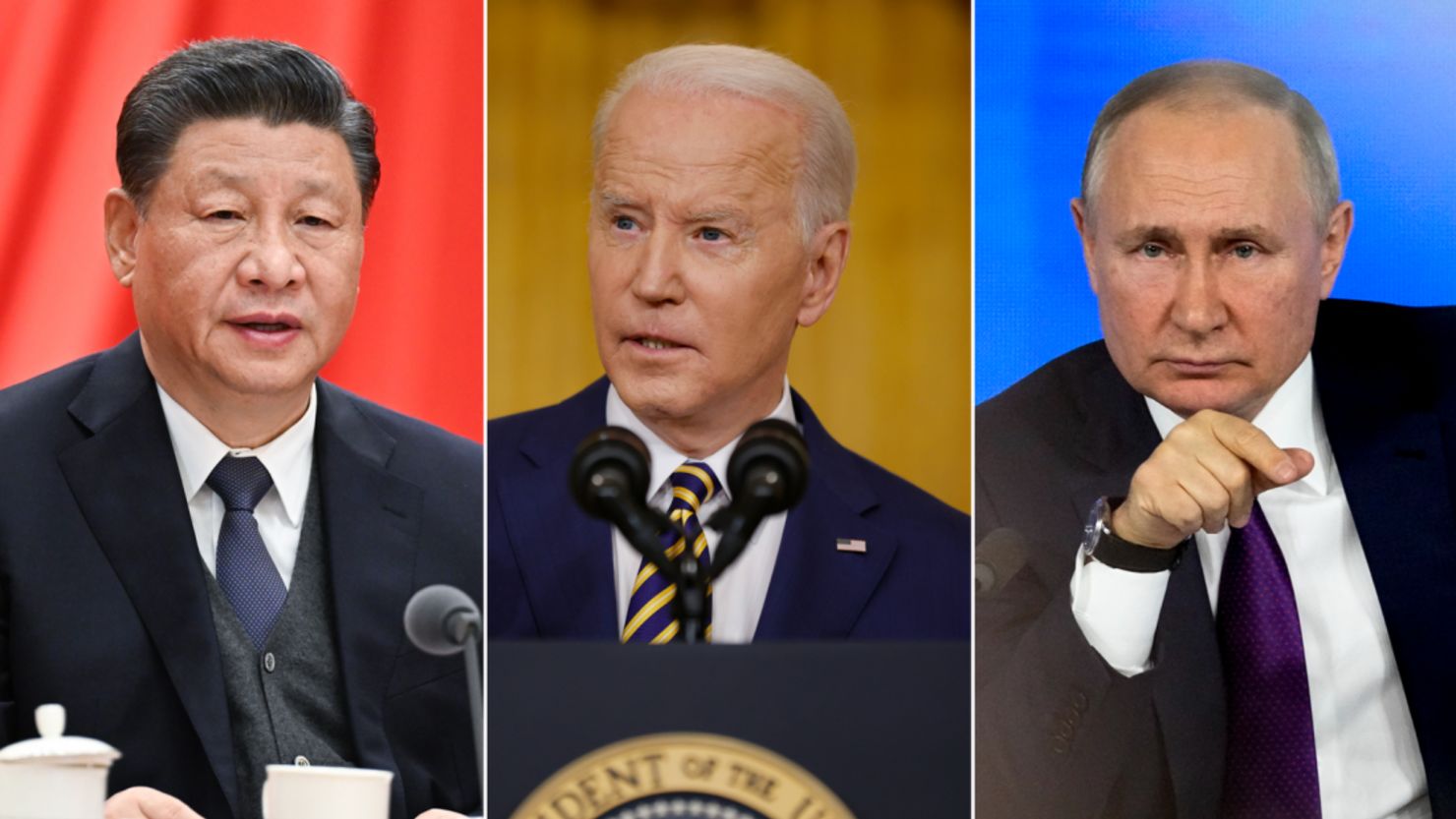President Joe Biden said earlier this week he was planning to speak “soon” with his Chinese counterpart, Xi Jinping.
But before his staff even began planning for the call, another meeting was taking shape: the Chinese government announced Xi plans to travel Monday to Russia for a three-day summit with President Vladimir Putin as Xi works to cast himself as a potential peacemaker in the Ukraine war.
In Washington, officials view Xi’s intentions with deep skepticism; China has refused to condemn the war and instead claimed Moscow was provoked into invading Ukraine. After China announced Xi’s visit to Russia by saying he was traveling “for the sake of peace,” the White House worked to preempt attempts to frame the Xi-Putin meeting as a peacemaking mission, suggesting any framework offered by Beijing would be weighted toward Russia and bad for Ukraine.
“As they begin to plan out their agenda, we certainly want to express how concerned we would be by any proposals from (China) that would … be one sided and reflect only the Russian perspective,” said John Kirby, a spokesman for the National Security Council.
He said such a Chinese proposal could include some type of ceasefire, which he said would merely provide a way for Russia to regroup before launching a reprisal.
“A ceasefire now is effectively the ratification of Russian conquest,” he said.
The Putin-Xi summit itself did not come as a surprise to the White House since there have been reports such a meeting could occur for weeks. Still, there remain deep concerns the “no limits” partnership Xi and Putin have cemented during previous meetings could deepen during face-to-face talks.
And there is a growing fear that further Chinese intervention in the conflict would fundamentally change the battlefield dynamics – or at least prolong the war at a moment when political appetite in the West for supporting Ukraine is being tested.
Xi has remained Putin’s best antidote to US-led attempts at isolating Russia. Even Friday’s decision by the International Criminal Court to issue a warrant for Putin – meant in part to prompt world leaders to “think twice before shaking his hand or sitting down with him at the negotiating table” – didn’t appear likely to deter him from his support.
So far, officials have said there hasn’t been any indication that Beijing has made a final decision to assist Moscow’s war efforts with lethal aid. But they have been considering it, according to American officials, who have been monitoring intelligence on a day-to-day basis for indications that Xi is going forward.
Next week’s meeting could provide a venue for such an announcement.
“It’s something that we will watch for,” US national security adviser Jake Sullivan said this week. “Obviously, Russia has its own interests in trying to pull other countries into this conflict if it can, but our position is the same whether or not they meet.”
But some US officials consider it possible that the meeting could push off any imminent lethal Chinese support for Russia, given Xi’s efforts to cast the trip as one seeking peace.
The concern among US officials is not necessarily that Chinese weapons would help Russia land a decisive win in Ukraine. Instead, the worry is that lethal aid from Beijing would bog down the war in a way that would serve Moscow.
A drawn-out war could also benefit China if American resources and attention are consumed in Ukraine, instead of in Asia, where Beijing has become increasingly assertive militarily. And while China has not provided lethal support to Russia up until this point, it has been willing to import large sums of Russian energy, which has allowed Moscow’s fiscal revenues to increase over the last year – despite sanctions implemented by the US and its European allies.
It is against that backdrop Biden has repeatedly warned Xi against siding with Russia in the war, including during a phone call in March 2022 and in their face-to-face meeting last November in Bali, their only face-to-face since Biden took office.
Biden’s desire to keep lines of communication open with China – including through regular telephone calls with Xi – is currently the administration’s primary objective in dealing with Beijing, according to officials, who say the risk of military or diplomatic miscalculation is higher when the two sides aren’t talking.
Yet even those efforts have been taken off course in recent months with the cancellation of Secretary of State Antony Blinken’s visit to Beijing due to the Chinese spy balloon that crossed over the US. American officials initially said the meeting would be rescheduled, but more than a month later there remains no new date on the calendar.
US officials have also been using their regular diplomatic channels to encourage a conversation between Xi and Ukrainian President Volodymyr Zelensky, believing it would be useful to hear the Ukrainian perspective directly from him. Xi has not had a single phone call with Zelensky since the Ukraine war began.
“We think that it’s important that China has the perspective of Ukraine. Clearly, Russia’s motivations are nefarious,” Pentagon press secretary Brig. Gen. Patrick Ryder told CNN on Friday. “They illegally invaded and have occupied Ukraine. We hope that President Xi and the Chinese government would be able to have the benefit of understanding what exactly the impact of their support to Russia is having.”
It remains unclear when those conversations might occur, however. White House officials said there haven’t been any logistical arrangements to set up a call between Biden and Xi. And there is little question that the deep personal affinity between Putin and Xi has helped enhance closer ties between their nations as they each warn of encroaching American influence.
Before the war began, the two men issued a 5,000-word statement declaring their relationship had “no limits.” Since then, China has provided diplomatic support for Russia, and the US sanctioned a Chinese company for providing satellite imagery to the Russian mercenary Wagner Group.






